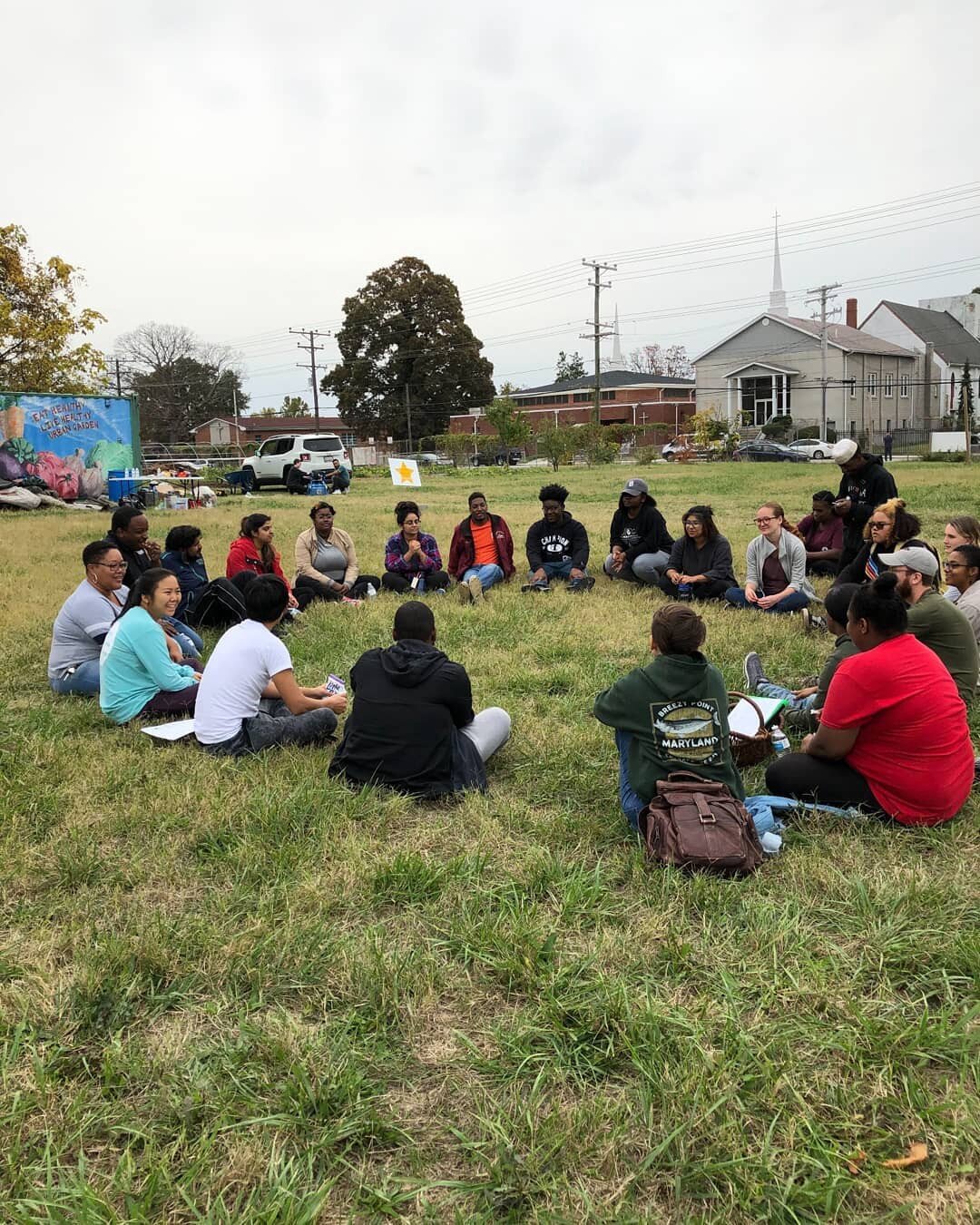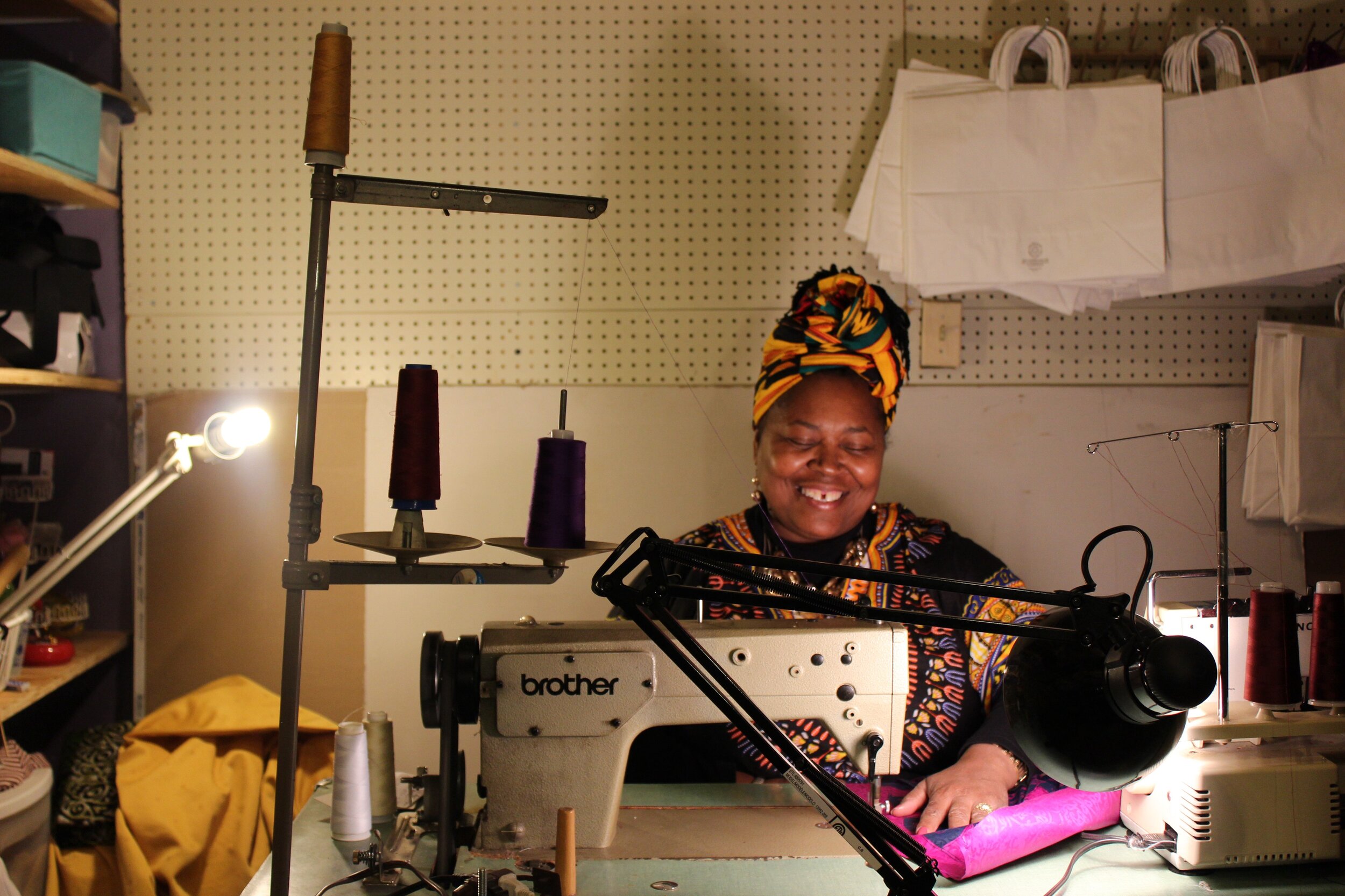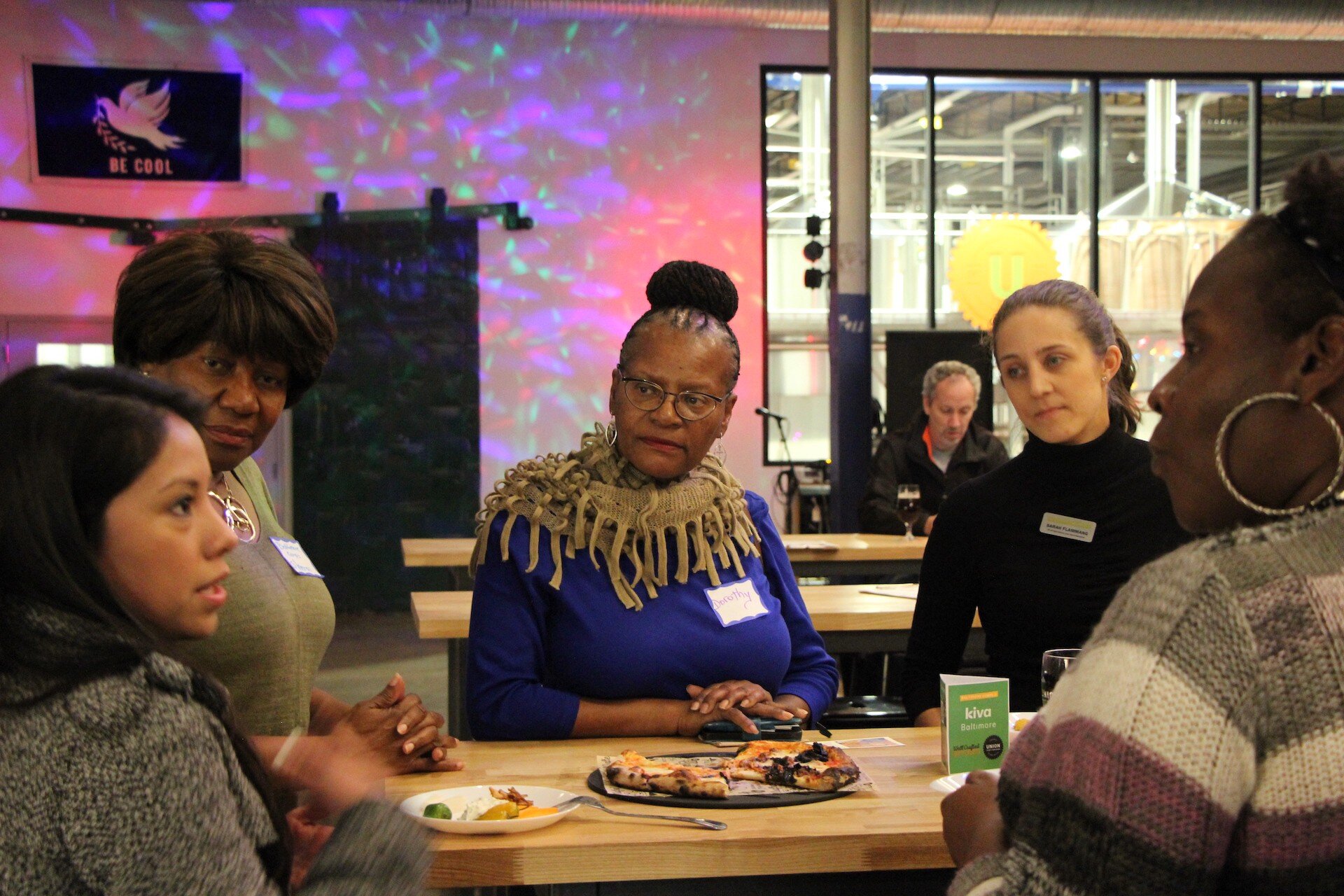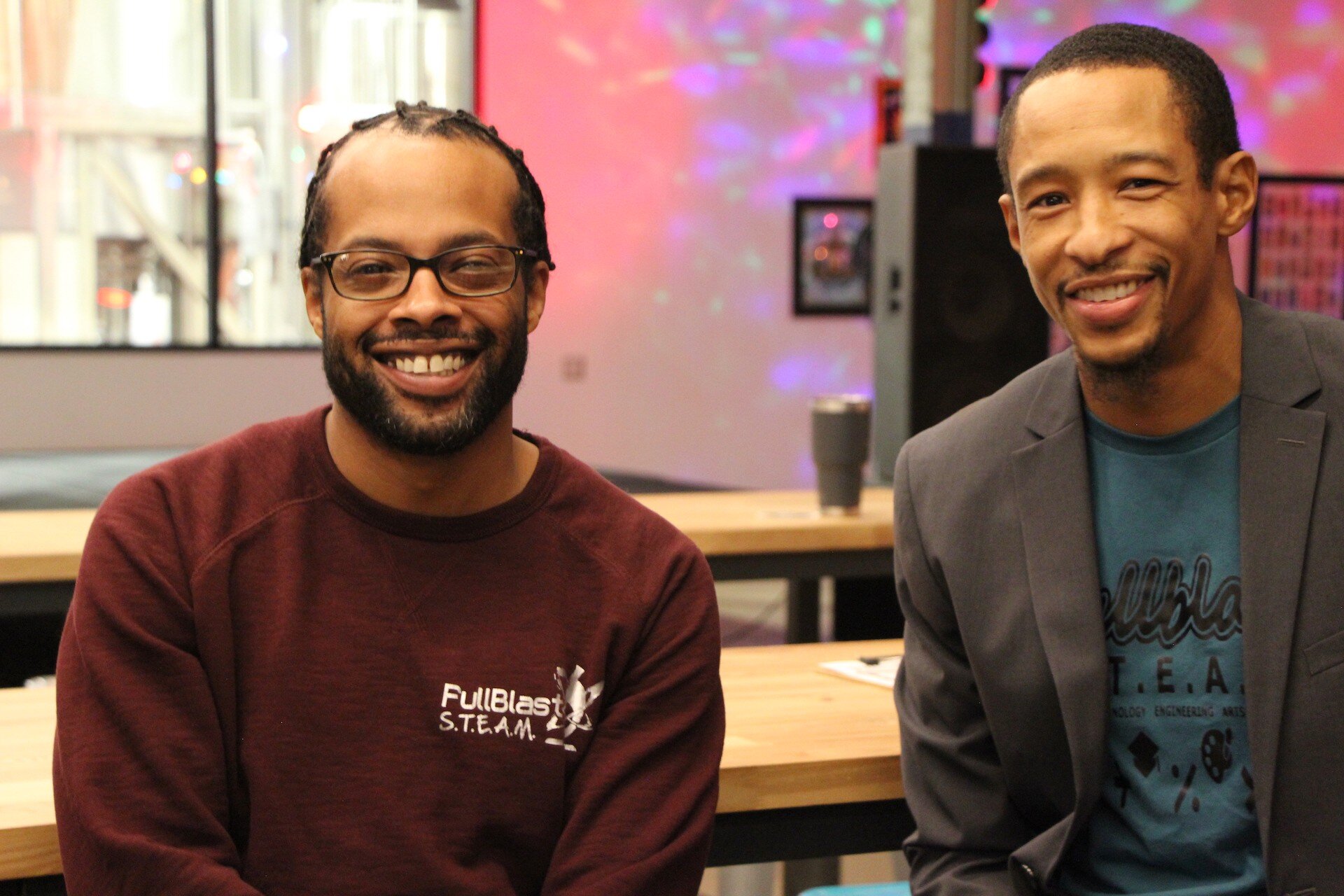Environmental Justice is Equity Work
by Blake Wrigley
Within the past several years, equity has been a focus point in conversations around the city. One area in Baltimore where equity is needed, but is all too often overlooked, is in our environment: the air we breathe, the trees that clean our air and keep our streets cool, and even the houses that we call home.
Air quality, tree coverage, and safe housing are environmental factors that we often take for granted, but in Baltimore are examples of inequitable systems. Air pollution, lack of city trees, and lead poisoning disproportionately affect Black and poor folks in the city. These public health issues are environmental injustices, as environmental benefits and burdens are not being evenly or fairly distributed.
In Baltimore, asthma-related hospitalization rates are doubled compared to the rest of Maryland and almost three times higher than the U.S. average. These cases are often connected to poor air quality, which can be caused by incinerators and industrialized areas, traffic emissions from highways, as well as abandoned housing which comes with a slew of problems including asthma triggers. Undoubtedly, Baltimore’s poorest neighborhoods are disproportionately exposed to these air pollutants and environmental hazards.
Additionally, Baltimore’s history of redlining continues to have an environmental impact on neighborhoods to this day. Due to these hypersegregated neighborhoods experiencing decades of disinvestment, these same areas in the city have less trees and greenspaces.
Residents in these neighborhoods are simultaneously living without thebenefits of trees and greenspaces in the city, while also living in urban heat islands, or areas that become extra hot due to excess pavement and concrete and lack of shade.
Historically redlined neighborhoods also tend to have the most cases of lead poisoning in Baltimore. This is caused by exposure to old paint chips and dust, and lead-contaminated water due to old plumbing. This is an issue that directly affects young people, as children and adolescents are the most vulnerable to lead poisoning, which can cause serious developmental problems.
In order to achieve environmental justice and create an equitable future, communities most affected by these issues must be recognized as the true leaders in the fight for a healthier environment. This can be seen in Baltimore’s rich environmental activist history, such as when city residents blocked the construction of Interstate 70 to save Gwynns Falls Leakin Parkor when the then 17-year-old Destiny Watford led a campaign to shut down what would have been the country’s largest trash incinerator from being built in south Baltimore.
This leadership is also being modeled in community-based organizations such as Fight Blight Bmore (founded by Nneka Nnamdi, a Baltimore Corps Elevation Awardee) and Black Yield Institute. These grassroots organizations are empowering their communities by connecting people to the physical land, and by doing so, are enacting environmental equity practices in the city.
At Baltimore Corps, we are passionate about advancing equity and racial justice in our city. We seek to push the equity needle forward in all aspects of life here in Baltimore.
We’re proud to work with nonprofits and government agencies that are facing these environmental justice issues head on. Current and former Fellows and Public Allies are working (or have worked) with partners such as Baltimore Tree Trust, Green & Healthy Homes Initiative, Bikemore, and Baltimore City Health Department, all of which are doing their part to make the city cleaner, greener, and safer for all residents.
























